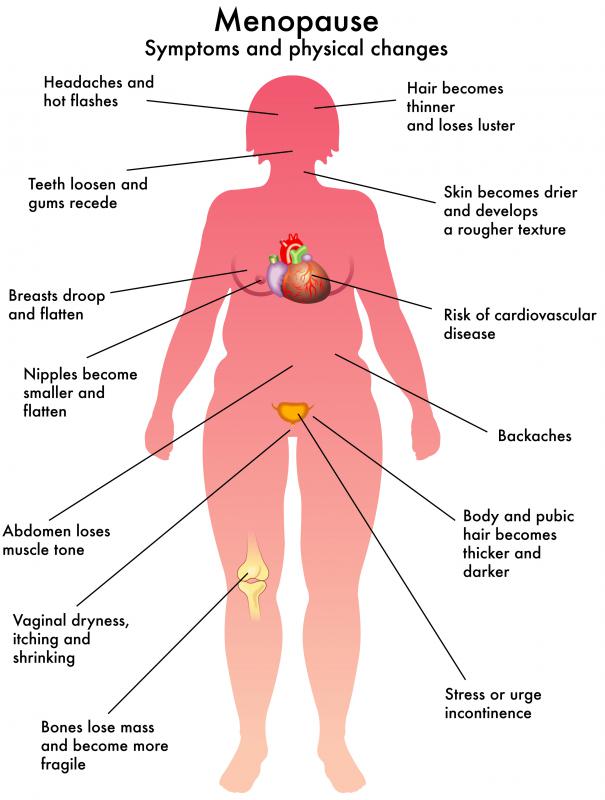At WiseGEEK, we're committed to delivering accurate, trustworthy information. Our expert-authored content is rigorously fact-checked and sourced from credible authorities. Discover how we uphold the highest standards in providing you with reliable knowledge.
What are Common Causes of Fever and Night Sweats?
A fever and night sweats are symptoms that can have a variety of causes, from normal hormone changes, especially during menopause, to severe medical conditions like tuberculosis. Treatment options are as varied as the potential causes, as the underlying condition must be properly diagnosed and treated on an individual basis.
Night sweats often occur whenever a fever is present. Common infections, such as the common cold, can cause both symptoms in some patients, and they typically go away on their own once the infection is resolved. There is no effective medication to treat most viral illnesses, like colds, but over-the-counter medications will often provide relief from the symptoms. Bacterial infections can also cause a fever, and prescription antibiotics are often prescribed for those that the body can't recover from on its own.

Menopausal women often experience fever and night sweats due to hormone fluctuations during this time. When these symptoms are present, the gynecologist will often perform blood tests in order to determine if estrogen levels are normal. In some cases, hormone replacement therapy can help to ease these symptoms of menopause. Sleep aids may be prescribed since insomnia often occurs as a result of hormone changes.

If these symptoms become a persistent problem, a medical professional will likely order tests to determine if a serious illness, such as tuberculosis or leukemia, is present. Early diagnosis of these conditions can increase the chances of symptom relief and help to prevent complications. In most cases, however, these symptoms are not related to severe conditions such as these.

There are some lifestyle changes and home remedies that may help to provide some relief from fever and night sweats. For instance, some people find that lowering the room temperature before going to bed will often allow them to sleep better, preventing insomnia due to the discomfort of these troublesome symptoms. Taking a cool shower and drinking a glass of water just before bed is often helpful as well.

Taking a dose of aspirin or acetaminophen just before bed may reduce the fever that often leads to night sweats. Avoiding exercise or hot baths just before bed can also help to prevent these symptoms. Caffeine, cigarettes, and alcohol can raise blood pressure, increasing the possibility of night sweats, so avoiding these things late at night may prove to be beneficial. Many patients also benefit from keeping a sleep log, which helps to keep track of anything that may contribute to the problem, such as room temperature or emotional stress.
AS FEATURED ON:
AS FEATURED ON:




















Discussion Comments
@croydon - Actually it is usually menopause that causes hot flashes and night sweats, not cancer.
Which is not to say that people shouldn't go to the doctor and figure out what is going on, but I think in most cases it will be something relatively benign like that, rather than a disease.
@clintflint - Unfortunately, tuberculosis will most likely never be completely eradicated like smallpox, because TB infects a lot of other kinds of mammals as well as humans.
I actually wonder if the changing climate is the reason there is a resurgence in TB. They think there is going to be a big resurgence of malaria, which also causes night sweats and fever, because of the rising temperatures around the world.
With that said, most people reading this with profuse night sweats should go and see a doctor, because the chances of it being TB or malaria are slim (depending on where you are in the world, of course) compared with the chances that it is cancer.
It makes me really angry that tuberculosis is becoming a real problem again in countries that should have eradicated it long ago. I mean, I personally think it should have been eradicated everywhere a long time ago, but to have it start to pop up again in wealthy countries is a terrible crime.
It's basically happening because the disease is becoming immune to standard (cheap) medications and the poorer folk in developed countries simply can't afford the "good" drugs. They in turn will infect more people in their neighborhoods until you have an epidemic on your hands.
Post your comments